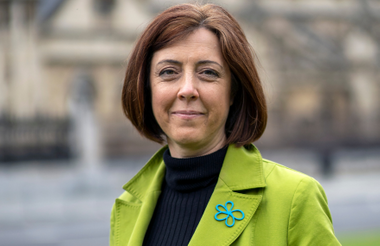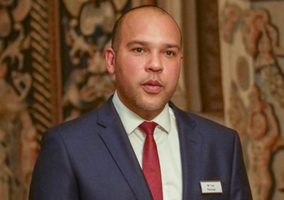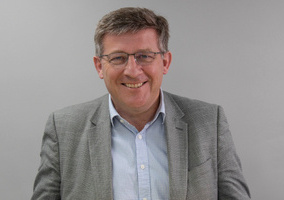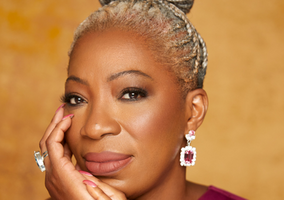Kate Lee joined Alzheimer’s Society as chief executive in March 2020, at a time when the charity was under scrutiny over its employee relations.
At the beginning of the year, the Charity Commission had began looking into the charity after the Guardian reported it had spent about £750,000 on non-disclosure agreements (NDAs) in recent years. The charity denied using NDAs, however it did say other settlement agreements had been used. In May 2020, the Commission found “no evidence of wrongdoing” after examining the use of settlement agreements at the charity.
Three years on, Lee says the Alzheimer’s Society’s reputation as an employer has improved but she is focused on increasing its diversity as well as awareness of its cause.
‘I feel I’ve got personal skin in the game’
Lee had been CEO at Young Lives vs Cancer, then named CLIC Sargent, for four years and would have stayed about a year longer but ended up leaving early because the opportunity at Alzheimer’s Society came up.
“My mum has Alzheimer's disease,” says Lee, so the CEO role at Alzheimer’s Society was a role she had always said she would go for “there and then” if the opportunity arose.
“That sense of it being a real vocational role and working in a charity where I feel I’ve got personal skin in the game, because of my own family circumstances, that was something I just wanted to give a shot.”
The first few months were “really turbulent” because Lee was dealing with both public visibility around concerns at the charity and then the beginning of the Covid-19 pandemic.
“I came a month early, for various reasons which were very public at the time. There was a change in chief executive needed earlier than the board had planned and I’d already been recruited.
“The board asked me if I would start early, which I agreed to do, and with hindsight, thank goodness they did because I was only in the office for three physical days, and had been in that job a week, when the news was coming out about ‘don't go into work if you don't have to’.
“There was obviously a big cultural piece to do and quite a significant financial piece to do,” she says. “I was glad it wasn’t my first rodeo as chief executive.”
The charity planned to take 40% of the cost of Alzheimer’s Society out of the organisation, which at the time was about £40m.
Having worked at crisis response organisation the British Red Cross for 17 years, Lee says she had learnt how to take a step back and calmly look at the big issues while “not trying to fight on every front”.
Lee changed her executive team quickly and by the end of May reduced it from nine directors to six.
“The organisation was very much up for change,” says Lee and Alzheimer’s Society “used some of the opportunity created by the pandemic, to resolve some of the issues in the organisation” – for example, the charity closed 80 plus offices.
“There were some opportunities from that time, but certainly long hours,” says Lee.
‘I feel uncomfortable shouting about how great we are’
Lee says recruitment and retention are now going well at the charity despite it having a “public image of not having a great culture” when she joined.
“I think within the sector, we’re probably becoming known as a good employer,” says Lee. “We’re getting a lot of applicants for each role that we’re advertising, and really high-quality applicants. So that’s really exciting.”
However, Lee says it is “always a challenge” recruiting fundraising roles.
“For every charity, we just seem to have a worryingly small pool of people who just go round and round and round, progressing upwards in the sector, and I would love to look at entrance to fundraising, diversity on entrance to fundraising.”
‘We are very white still at the top’
The charity aims to develop its diversity through changes to its recruitment methods.
“It is a big challenge for us, we are very white still at the top. An all-white executive and an all-white senior leadership team is just not acceptable.”
Lee says: “We are doing as much as we can at the moment to think about how we address that. We’ve got lots of programmes going on internally, like our rise programme, we’ve got women in leadership, development, and we're looking at more career opportunities.”
She adds “it doesn’t surprise me” that for many years the charity, which has been a predominantly white middle-class organisation in its leadership team, has had its “services viewed as most appropriate to a white middle-class audience”.
The charity must be “open and accessible” to anybody with dementia as people will only choose to access their services “if they see us as an organisation which would be culturally sensitive and understanding to their needs”.
“That only works when you get that real diversity throughout the entire organisation,” and also “it only works if you get people in power and decision makers that can bring that lived experience of different forms of diversity to ensure that the organisation genuinely reflects that”.
“I come from quite a working-class background, and I know that when we've been talking about things like impacts of the cost of living, I can bring quite a different perspective.
“It brings a diversity of thought to the table that means that the end product is better than if it had just been decided on by people all from the same background.”
Lee also thinks working “on inclusion and belonging as fast as you're working on diversity” is key; “I have no interest in having a visibly, or invisibly, diverse workforce if people do not feel they can speak up and challenge those decisions and that decision-making”.
For example, the charity made a one-off payment to people at the end of last year at Christmas time. Someone emailed to flag “there wasn't someone on Universal Credit in the room when you made that decision” because the bonus meant it skewed their welfare payments.
‘All charities act in an agency role’
Lee says it is important for charities to work with donors on how they want to support the organisation.
“No one donates to Alzheimer’s Society, they donate to people with dementia. All charities act in an agency role and charities that forget that, forget it at their peril. We act in an agency role between donors who want to support people with dementia, and people with dementia.
“Some charities just do not pay the same credence or heed to what it is that their service users want – so actually, co-design is absolutely essential to ensure you’re getting an impact, because you need to be constantly tuning the organisation to hearing what people need.”
She says the charity “can’t be tokenistic” and it must constantly receive significant numbers and a diversity of views “to ensure that what we’re doing is not shaping the organisation to the needs of a very small group”.
In the past year, Lee says the charity has been focused on transferring power to its beneficiaries as well. Alzheimer’s Society has recruited someone with dementia to its board and has people with dementia on all its subcommittees.
“It’s really important to me that the organisation is authentic,” she says. “You have to walk the talk to have credibility. And so, for me that whole co-design and co-production space is vital for us having credibility as an organisation.”
Working with other charities
“Alzheimer’s Society was not necessarily seen as a great collaborator before I came, whereas it’s something that I’ve always hoped I have had in my personal brand,” says Lee. “I’m up for working together with people – it is an area we’ve been strengthening. We’re really interested in co-commissioning.
“We’re significantly the largest dementia charity in the UK and I think we have some responsibilities. We have to act as a bit of an infrastructure body to make sure that we’re connecting as many dementia charities, people living with dementia, to key decision-makers to donors, as we possibly can.”
Lee says “a high tide for Alzheimer’s Society should raise all dementia ships” and “I think that's genuinely understood across the organisation”.
The charity made a commitment in its new strategy to be known as a great partner. Lee says the charity doesn't presume they are the expert, though “we’ve got scale on our side” others have really tight unusual specialisms on theirs.
Next few years ‘will fundamentally change Alzheimer’s Society’
Dementia has been the biggest cause of death in the UK for many years, although deaths from Covid-19 exceeded it during the height of the pandemic.
The charity is trying to get people to “understand the implications of dementia”, with 900,000 people diagnosed now and 1.6 million expected to be diagnosed by 2040.
“It’s the UK’s biggest killer. It’s the biggest user of social care. It’s among the biggest reasons that hospitals can’t discharge. It is such a profoundly huge health challenge,” says Lee.
“And yet, 10 to one we hear discussions about cancer in the media, within the government, compared to dementia. And we need to raise the profile and the prominence of the problem of dementia.”
Lee says Alzheimer’s Society will work on multiple fronts to do this including private and public campaigning.
However, she says, “it’s an exciting time” in terms of dementia drugs that are coming out.
“Over the next five to 10 years, we will see some significant changes in the drugs that can be offered to people, which may significantly slow down decline or may even prevent people’s symptoms from declining at all. And that will fundamentally change Alzheimer’s Society forever because it will change dementia forever.”
Related Articles












